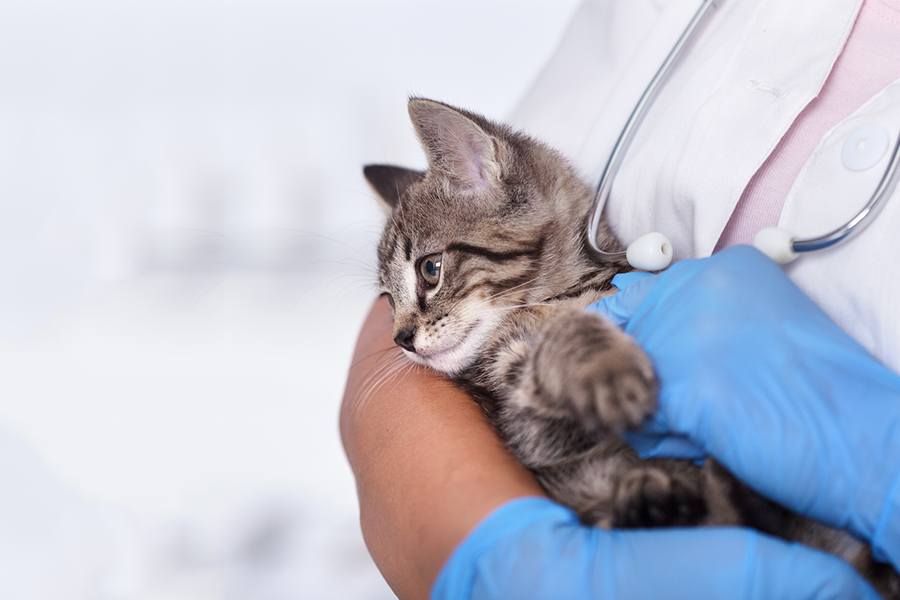March 2023
Each year, there are thousands of cases of potential pet poisoning
But there are simple ways to prevent these.
Animals’ curious personalities are part of what makes them such wonderful companions. Still, sometimes their curiosity can cause them to get into things they shouldn’t – smelling, tasting and eating whatever interests them.
The health and happiness of our furry family members are a top priority. Unfortunately, each year, there are thousands of potential pet poisons cases. Although there are simple ways to prevent these cases, awareness and education are your most powerful tools to keep your pet safe.
Many household items humans buy regularly can severely harm our pets. When it comes to food, be sure to keep items such as chocolate, avocados, garlic, onions, grapes, raisins, alcohol, raw yeast bread dough, and xylitol (an artificial sweetener) far away from your pets’ reach.
Human medications account for a high proportion of pet poison cases. Other household items such as cleaners, pesticides, and air fresheners can also threaten your animals. Be sure to keep these locked away.
Rodent, snail and slug baits are often used to keep pests at bay. However, if ingested, these poisons are extremely harmful to pets. They are highly toxic and can be fatal without immediate veterinary attention. Rodent baits typically can result in blood clotting disorders, brain swelling or kidney failure, while snail and slug baits can result in severe tremors or seizures.
Another unexpected hazard is household plants. Some plants contain toxins that harm your pet’s digestive and circulatory systems. If you have dogs and/or cats, stay away from tulips, azaleas, lilies, and sago palms, all of which can cause sickness or even death to your pets if left untreated.
Symptoms of poisoning vary depending on the substance that has been ingested. But they may include vomiting, diarrhoea, bloody stool or excessive urination. Seizures, dizziness or loss of coordination. Loss of appetite, lethargy, unusual breathing patterns or heartbeat. Remember, these are only signs of poisoning, and other symptoms may appear.
Pet proofing your house is the best solution to avoid your pets getting into something they shouldn’t. Keep your cleaners and detergent hidden away. Keep dangerous food on the top shelves or cabinets. Keep hazardous plants out of the house.
Click here for more information on what could threaten your animals.
First steps if you suspect that your pet has been exposed to a poison:
- Remove your pet from the area so the poison is out of reach.
- Check how your pet is breathing and acting. Even if it seems normal, it still might have been exposed.
- Avoid giving your pet home remedies, and don’t induce vomiting.
- Call your nearest AWLQ Community Vet Clinic or contact the Australian Animal Poisons Helpline at 1300 TOX PET for instructions.
If your pet eats something poisonous, you’ll need to act fast. The smaller the pet, the less toxin it takes to cause severe illness or even death. It’s essential to try to identify what your pet has ingested.



